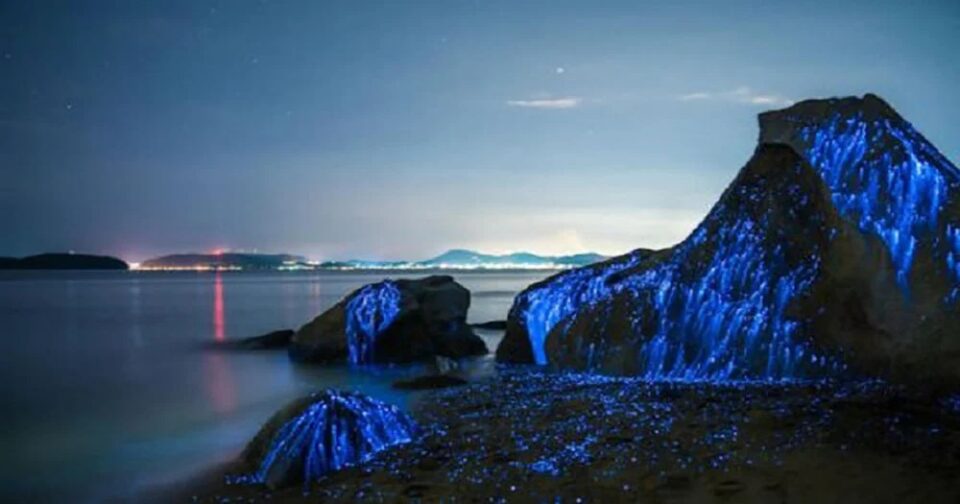A group of photographers captured a stunning scene of thousands of blue sea shrimp on the Japanese coast.
Photographers Trevor Williams and Jonathan Galione photographed luminescent shrimp in a photo series titled “Tears” in August, according to Mother Nature Network. They took pictures in Okayama, Japan, where there is an extremely plentiful supply of luminescent shrimp.
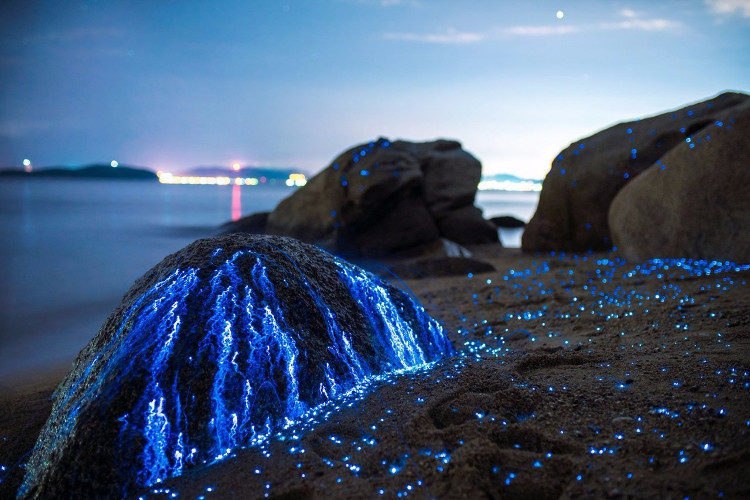 “Luminescent shrimp live in sand in shallow water, so you can often see them stranded. But to have a large number like in the photo, you have to catch them,” the two photographers shared. They used glass jars to catch the shrimp, then poured them on the rocks to let them glow while swimming in the ocean.
“Luminescent shrimp live in sand in shallow water, so you can often see them stranded. But to have a large number like in the photo, you have to catch them,” the two photographers shared. They used glass jars to catch the shrimp, then poured them on the rocks to let them glow while swimming in the ocean.
The strange scientific name for this strange luminescent shrimp is Vargula Hilgendorfii, but locals used to call them by the name “umihotaru,” which means sea firefly in Japanese.
At night, luminescent shrimp often light up the Seto Sea region, the waters between the Japanese islands of Honshu, Shikoku, and Kyushu.
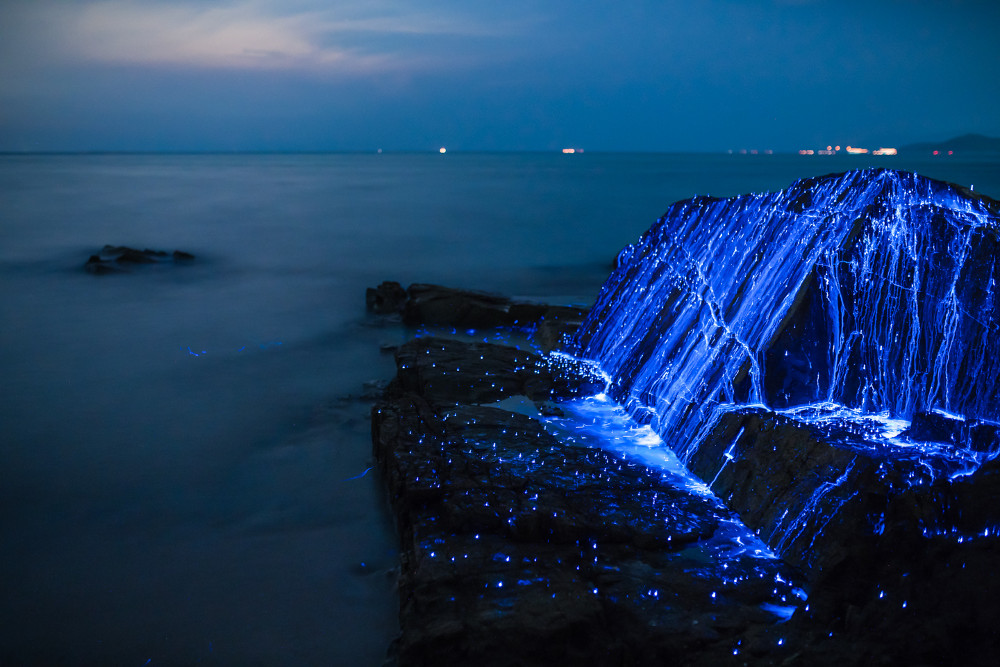 This tiny shelled crustacean shrimp is only three millimeters long with its smooth, transparent circular weave and a beak-like protrusion on the front.
This tiny shelled crustacean shrimp is only three millimeters long with its smooth, transparent circular weave and a beak-like protrusion on the front.
Luminescent shrimp feed by swimming around the shore at each high or receding tide. Their food sources are dead fish and worms.
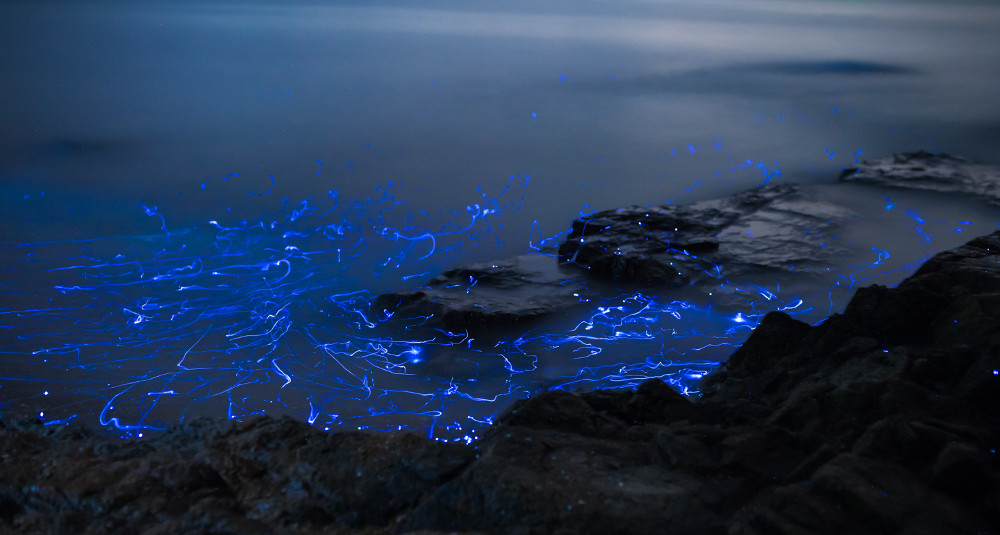
They glow blue for about 20 to 30 minutes in response to physical stimulation and can repeat bioluminescence when exposed to seawater.
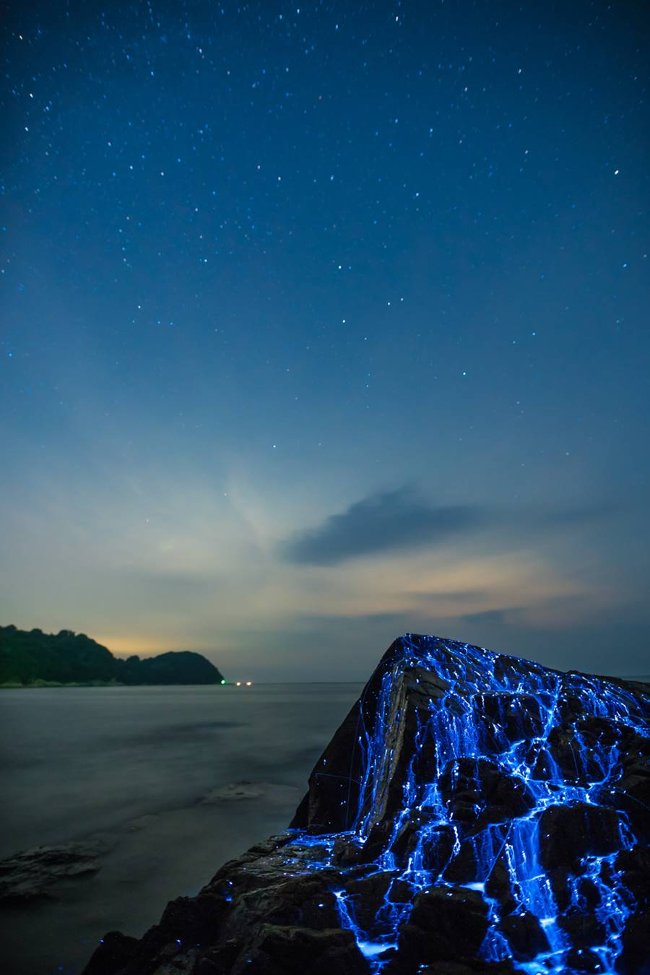
According to a study published on the website of the American Center for Biotechnology Proficiency, this marine species luminescent through the reaction between the enzyme luciferase, the protein luciferin and the oxygen molecule.


